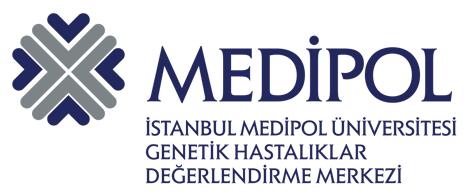
In the Diagnosis of Genetic Diseases,
We are working to make the possibilities of modern science accessible
Our molecular genetics laboratory has been operating for 6 years with the principle of providing reliable results with its strong technical infrastructure. Our center has focused on “whole exome sequencing” studies with its “new generation sequencing (NGS)” infrastructure and expert staff. This study and analysis, which is carried out by sequencing the exons of approximately 20 thousand genes, which cause more than 85% of known diseases, is carried out with great care. As a result of the analyzes carried out in light of the current clinical data, it is possible to arrive at the diagnosis of many diseases with this method. In parallel with all exome sequencing studies, it is important to study many genes together for the diagnosis of hereditary diseases such as familial cancer screening tests, cardiac diseases, epilepsy, and muscle disorders.
We analyze big data with our strong bioinformatics infrastructure:
In parallel with the developments in the world, the huge data flow provided by New Generation Sequencing methods has increased the importance of “data security” discussions in our country too. Following the principle of data security and patient rights, we carry out all bioinformatics analysis processes in our center with our specialist physicians, technical staff, and bioinformatics team. The “analysis center” within Medipol has a high technological infrastructure that helps our team to process and interpret the large data output quickly. Verification studies of mutations determined by new generation sequencing are performed by Sanger sequencing method and segregation information is obtained through family studies.
We support routine work with our own designs:
While CFTR, BRCA, MEFV, and hundreds of genes are routinely studied in our laboratory, most of our gene sequencing studies are designed and optimized in our center as a result of the ‘R&D’ studies we carry out in our routine studies. Detecting and reporting diseases caused by large deletion-duplications such as Spinal Muscular Atrophy (SMA) and Duchenne Muscular Dystrophy (DMD) from the detection of disease-related point mutations such as thrombophilia are among our main activities. In the case of early detection, we work to provide fast and reliable results in diseases such as SMA, where treatment success is significantly increased.
Cancer tests; a race against time:
Genetic factors are one of the factors that trigger cancer formation. Detecting somatic mutations is a race against time according to the course of the disease. Traditional methods that have proven their efficacy to achieve accurate and fast results are an integral part of our routine work. Our routine oncology tests; RAS gene family mutations, fusion tests (translocation), JAK2, CEBPA, FLT3 tests lead us to rapid and reliable results in somatic cancer studies. In addition to these studies, we also benefit from the possibilities of new generation sequencing. In this direction, we serve with a Myeloid and Lymphoid panel consisting of many genes.
We support research activities with our strong infrastructure:
Our molecular genetics laboratory also supports academic studies with its strong technical infrastructure and experienced staff. Our molecular genetic infrastructure provides opportunities for RNA-Seq, small-RNA, whole-exome sequencing, 16S phylogenetic, metagenomics, and gene expression studies. With our expert and competent staff, we contribute to research and development activities at every step from experiment design to data acquisition and analysis.
